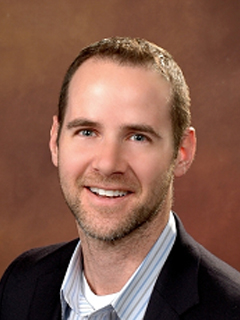HOW CAN WE HELP YOU? Call 1-800-TRY-CHOP
In This Section
Researchers Study How to Improve Daily Living for Transition-Age Autistic Youth
Many autistic teens and young adults don’t have the quality of life they desire because they struggle with daily living activities, such as self-care and health, taking care of finances, and managing an apartment, all of which are needed to help support independence.
With multimillion dollar funding from the National Institute of Mental Health, Benjamin Yerys, PhD, a psychologist in the Department of Child and Adolescent Psychiatry at Children’s Hospital of Philadelphia, and his research team will work to demonstrate that two foundational skill sets — executive function and self-determination — can predict autistic young adults’ ability to improve daily living skills and independence.
“These two skill are very responsive to intervention and support,” said Dr. Yerys, who is also director of the PASSAGE Program in CHOP’s Center for Autism Research. “They can change, they can improve. If we’re able to demonstrate that they are driving part of the problem with people’s daily living skills, then we can immediately turn and implement a treatment that is focused on these causal skills.”
That’s a key aspect of the PASSAGE Program, a multidisciplinary partnership that centers on the transition to adulthood for autistic teens and young adults ages 14 to 25, according to Dr. Yerys. PASSAGE stands for Partnership with Autistics for Successfully Supporting Adult Goals and Experiences. It combines research, a clinical care model, education, and resources to support the transition to adulthood for autistic people, keeping in mind that success will look different for each teen and family.
“All of our projects have an intention that we should have an immediate translation,” Dr. Yerys said. “When a study is over, we have to have a tool, an intervention, or an ability to make a policy statement for ways to support autistic people better.”
Transition to Adulthood
“SOAR: Studying Outcomes of Autistic Individuals Transitioning to Adulthood” is a longitudinal observational study where the researchers will “see what’s happening in the real world,” Dr. Yeyrs said, to provide a blueprint for adaptation of existing treatments, identify a pathway toward enhancing quality of life, and elevate the need for equitable access to support for daily living skills.
The study team is recruiting approximately 200 autistic youth ages 16 to 21, who span across a wide range of cognitive abilities, and are in their last two years of either high school or extended education, which enables students with higher support needs to stay in secondary education through age 21. The investigators will follow the participants through three assessments over a two-year period to track their skills as they’re exiting secondary education.
And by using a census-derived measure that targets opportunities available for children through young adults, they will look at the potential role of social determinants of health, both at the family-level (parent education, family income) and neighborhood-level.
The research team, which includes co-PI Lauren Kenworthy, PhD, division chief of Neuropsychology and director of the Center for Autism Spectrum Disorders at Children's National Hospital, is in the planning stages of the study. They will be meeting with their advisory board that includes two autistic individuals and a parent of an autistic person with intellectual disability. The consultants will provide critical feedback on how the researchers can make their study materials and questions both accessible and most meaningful for the autism community based on their experiences.
The team also is partnering with Project Elijah Empowering Autism, which is a Philadelphia nonprofit for autistic youth who live in the West Philadelphia area, to gather feedback to ensure the study is meaningful to their daily lives.
“At the end of the study, we want to be able to modify an existing treatment or develop a new one, which we believe will include executive function and self-determination, to support people’s independence and improve their quality of life,” Dr. Yerys said.

